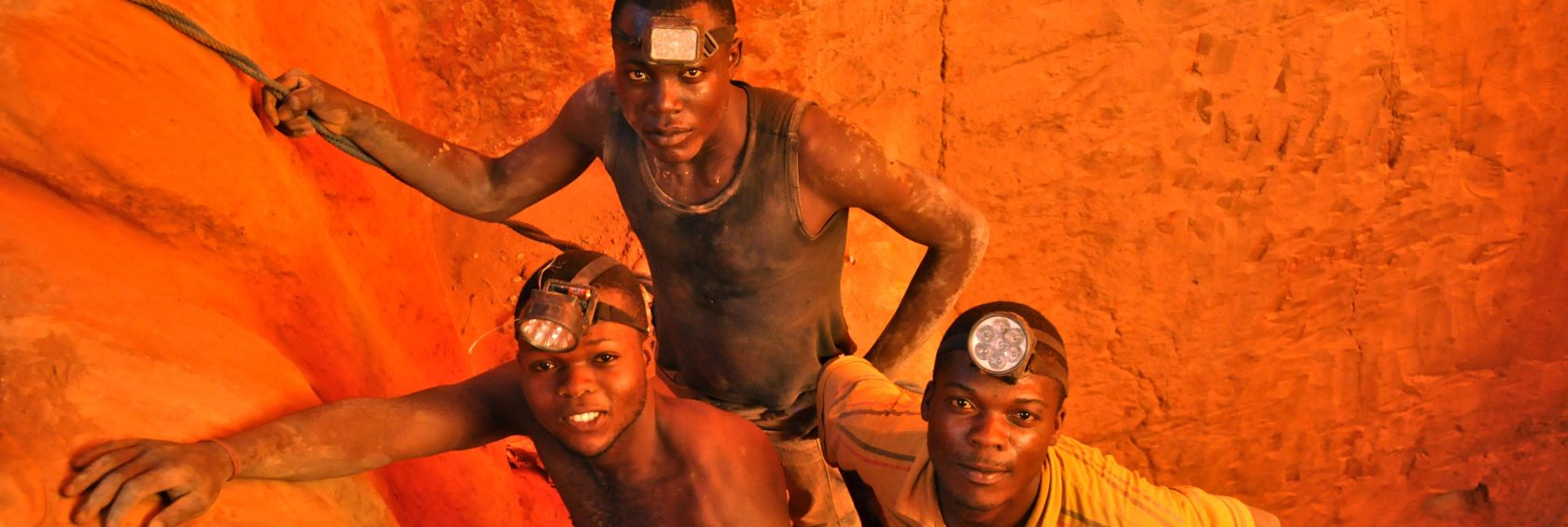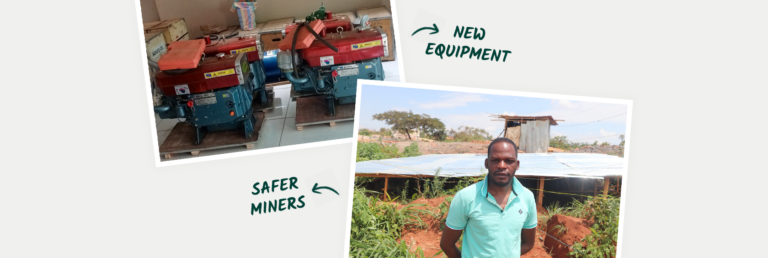Digging for change
Part two of a guest feature by David Sturmes, Director of Programme and Operations at the Impact Facility.
In 2018 Fairphone has partnered with global lighting company Signify, the Chinese cobalt refiner Huayou Cobalt and the Impact Facility (TIF), a social business dedicated to improving the livelihoods of artisanal miners in poverty-ridden communities, to build a program that addresses the complex challenges around ASM cobalt production in DR Congo. Through the Fair Cobalt Alliance (FCA), the companies join forces to offer technical expertise to and channeling investment into the communities living and working at two mine sites in the mining city of Kolwezi: Kasulu and Kamilombe.
Our plans do not only focus on improving the working conditions of miners on the ground, but also aim at contributing to the regional issue that is child labor, as well as addressing the current lack of viable alternatives to mining to combat widespread poverty.
Currently, the selected sites provide a livelihood for roughly five thousand artisanal miners. Kasulu stood at the center of Amnesty International’s 2016 report “This is what we die for”. Investing millions of dollars, Huayou Cobalt has since supported the professionalization of the independently operated ASM site, putting in place a wall and management measures to exclude children from the operations. Working closely with the cooperatives managing the sites, occupational health and safety have much improved, as is corroborated by independent monitoring companies. Yet, both Kasulu and the close-by Kamilombe site are often hazardous places to work and require significant investments and further professionalization before the operations could reasonably be described as meeting acceptable standards.
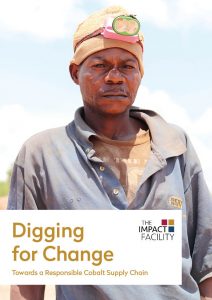
Realizing that there is little to no literature to describe how mines like Kasulu and Kamilombe operate, we decided to publish some of the insights we gained as we developed our cobalt program. The result: Digging for Change
The underlying assessment was never intended as a due diligence assessment, a forensic audit, or a statistical analysis of the circumstances of children and mine workers in the Kolwezi area. Instead, our goal was to paint a landscape of the issues associated with cobalt ASM and their possible solutions to design and develop a program of work that has ultimately resulted in the establishment of the FCA.
Creating decent working conditions
The imperative to make ASM sites safer
Our collective priority should be to improve working conditions at ASM sites. The only way to engage ASM constructively is by addressing safety and security issues in the sector through a systemic overhaul of production practices at the mine level. Currently, people working at the mines are at risk of severe injury or even death by mine collapse.
Focus on market transparency, rather than wage levels
Many mine workers are concerned about how much they earn. Usually, their incomes depend on how much cobalt they are able to produce. Consequently, it is challenging to positively impact their income due to the volatility of the international cobalt price as well as the complexity of compensation schemes. While we cannot artificially raise the prices, we see an opportunity to work on enhancing workers’ terms of employment and trade through the provision of transparent and fair buying practices at the trading stations (or depots). Such efforts should include but not be limited to the provision of independent purity and weight measurements, and potentially guidelines for pit-owners regarding the social welfare provided to injured and sick workers.
Supporting the surrounding communities
Aiming at child labor-eradication in the region and pursuing the goal of ensuring that the region prospers and benefits from its resource endowments, a landscape approach is needed. Consequently, we expanded the scope of our program to the entire mining community rather than focusing exclusively on on-site mine improvements.
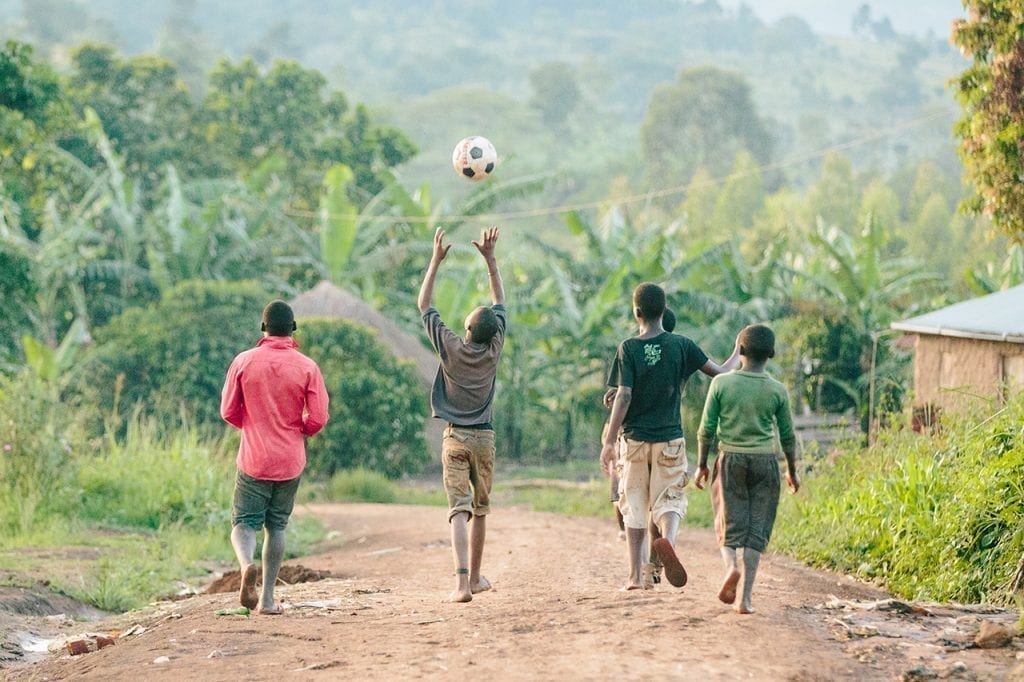
Fostering access to education for children & vocational training for youth at risk of or in child labor
As long as the region is characterized by widespread poverty, child labor will remain an issue. At mine sites, children can and should be banned from entering the premises by implementing systems that control the ingress of workers to ensure child-labor-free cobalt production. This does not help to solve the systemic issue of widespread child labor, however.
We have long-term ambitions to contribute to a thriving, diversified economy, boosting workers’ incomes and reducing the need for children’s financial contribution to household incomes.
In the short term, our program will support local organizations’ efforts to identify children in (hazardous) child labor and support them to (re)join formal primary and/or secondary education. At-risk youth will be targeted through offers of vocational training and be supported in finding formal employment upon reaching the age of 18.
Weaning Kolwezi off its dependency on ASM
Due to advances in the recycling of cobalt, because deeper deposits are best recovered mechanically, and because the price of cobalt has a history of fluctuation and creating uncertainty for the price of cobalt ore, the long-term future of recovering cobalt in Katanga region is unlikely to be through ASM. Rather, industrial mining is more likely to expand its market share of extracting the raw material. Large scale mining offers significantly less direct employment at mine level and mostly to skilled workers, many of whom come from overseas. Former ASM workers will need to find economic alternatives. Therefore, although artisanal mining of cobalt will be a feature of the sector for some time to come, it is timely to start thinking about what a ‘just transition’ of ASM workers to other economic activities should look like, to avoid the shock of mass unemployment.
Supporting entrepreneurship as the path forward
The Impact Facility suggests a strong focus on exploring options for and fostering access to economic alternatives in the artisanal mining communities of the region. One opportunity to highlight is the agricultural sector. The history in the region is one of agricultural abundance and soils known for their deep and fertile growing horizon, yet ironically the region currently depends heavily on imported food. As a result of decades of mining, a large share of the community has developed a culture that embraces the immediacy of cash payments as a central advantage of mine work. Many interviewees doubted that the average mineworker would ‘go back’ to subsistence farming given its uncertain and only delayed returns on investment.
For this reason, we believe that a well-planned program that fosters local entrepreneurship and offers employment in sectors that have comparable financial prospects is the best way to provide safer, and child labor-free working conditions in alternative sectors. Which specific sectors this could involve, and the time it will take and the investments needed to grow such opportunities, warrants further investigation.
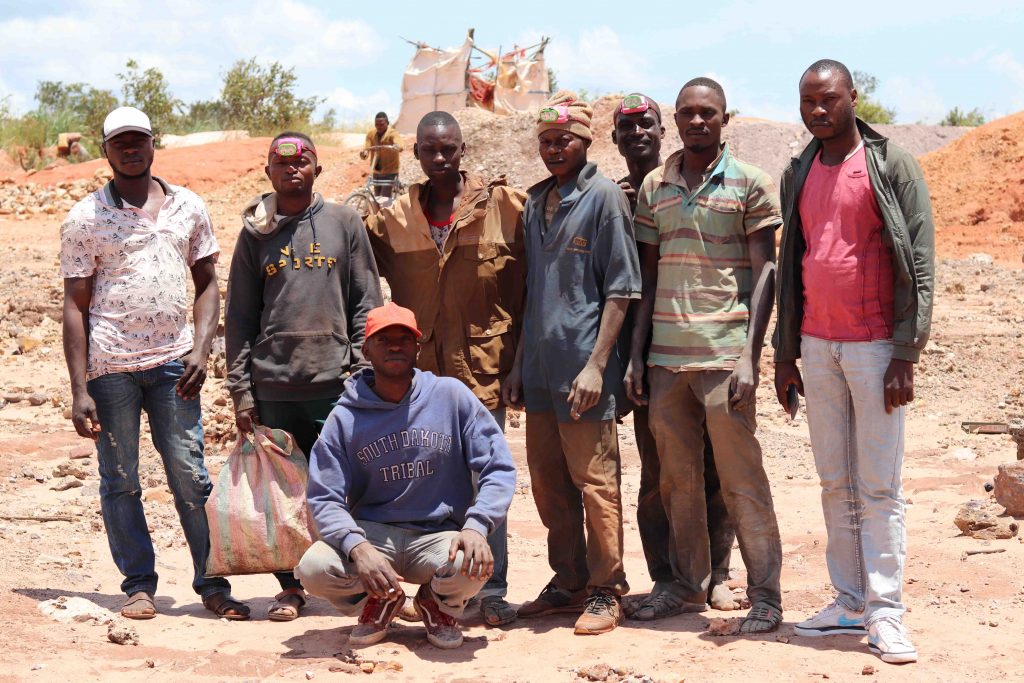
All this said, we are committed to making ASM working conditions better, to improve household incomes in the region and to protect children’s rights, while putting in place the lodestone for the longer-term ‘just transition’ to alternatives to ASM. However, we can’t do that by ourselves. A systemic value chain approach is needed to incentivize and catalyze sustained positive change of ASM cobalt mining practices in and around Kolwezi. To achieve improvements across the region, the responsibility to finance, implement and monitor should be spread along the cobalt supply chain from operators of ASM sites, to manufacturers, and, ultimately, to retail brands.
We are working hard to kick off investment into the mine sites in the coming weeks. We will start communicating more frequently about our plans, the program and the impact we achieve and will continue to recruit others to join us, leading the charge for change in the cobalt sector!
Editors note: In case you’ve missed it, here is David’s first guest blog “The charged debate around cobalt”.
We go straight to the source to make sure we’re creating positive change. One material at a time, we’re working to incorporate fairer, recycled, and responsibly mined materials in our phones – to increase industry and consumer awareness. Right this way to learn more about how we’re making a positive impact >>
